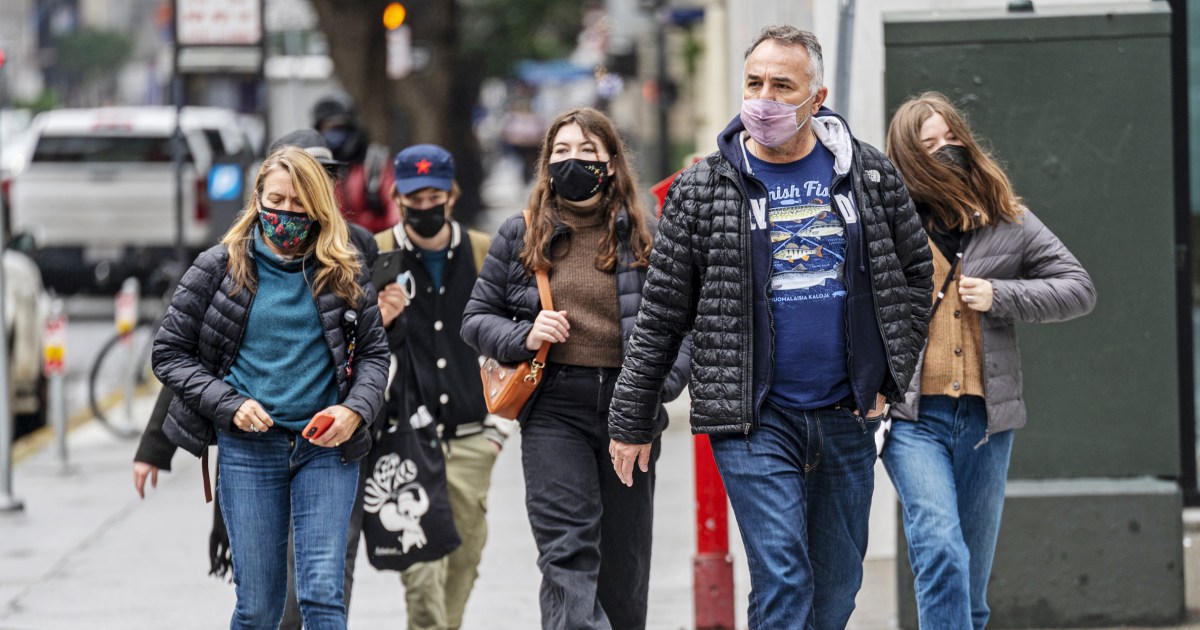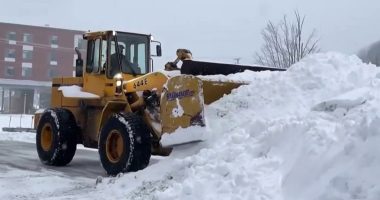
Alejandra Perez-Handler had a 2-month-old baby and desperately needed at-home work, so she took a job as a contact tracer in Connecticut.
From October through November, she made about 20 calls a day to people who had been exposed to Covid-19, painstakingly working through a lengthy list of names. Now, she makes about 30 calls a day as cases surge, largely because of the omicron variant of the coronavirus.
“It’s mentally draining,” said Perez-Handler, 23. “It’s just exhausting.”
Her eight-hour days have turned into 11-hour days, creating an increasingly stressful scenario for her family. Some calls last 10 minutes, while others can go on for a half-hour or more. Some people thank her; some hang up on her; some threaten to harm her, screaming and demanding that she tell them where she lives; and others are devastated.
“A week before Christmas, I had to call a mom about her baby, who was less than 30 days old and had Covid,” Perez-Handler said. “After the phone call, I told my supervisor, ‘I just had a really rough call, I need a break,’ and then just broke down.”
The changing nature of Covid-19 means major pitfalls for contact tracers, including extraordinary workloads and failed attempts to reach people who have been exposed.
Some epidemiologists maintain that contact tracing is a crucial preventive measure worth continuing, albeit with significant changes.
“It is important because it provides a landscape of who had been in contact with someone that is positive, so it helps us identify who can be the next positive or prevent the sick individual from transmitting the virus to a healthy individual,” said Luisa N. Borrell, a professor of public health policy at City University of New York.
While some calls fail, others can stop chains of infection, which is enough to keep contact tracing going, Borrell said. Ideally, it should reinforce other regulations, such as masking, testing, quarantining and isolating, she said.
Lorna Thorpe, director of epidemiology at New York University Grossman School of Medicine, who is leading the evaluation of New York City’s contact tracing program, said that aspects of contact tracing are beneficial even when the program is struggling. Advising people on how to get tested or where to seek medical help also helps, even when a contact tracer can’t gather the names of everyone who was exposed.
“What is less good is what the status of those contacts are, how many of them actually went on to get tested or how many of them already were tested or had symptoms,” Thorpe said. “That’s not quite as robust.”
If a contact tracer calls too late, people may already be at the end of their infections, she said. While a growing body of research shows that vaccinated people are less likely to spread the virus, the highly transmissible omicron variant has created new concerns.
The scarcity of tests throws up another obstacle, reinforcing Borrell’s point that other preventive measures have to be in place for contact tracing to work.
Last week, the Centers for Disease Control and Prevention shortened the recommended isolation time for people who test positive from 10 days to five if they’re asymptomatic or their symptoms are resolving. But some health experts said they feared that the reduced time would increase spread.
The seven-day average for Covid cases across the country reached its highest point Monday with an average of 740,594 new infections a day. Because of the surge, there have been more exposed people, and tracers have had to adapt to the increase. Perez-Handler said no one explicitly directed her to call 30 people a day instead of 20. But supervisors would suggest that she call more people, and failing to do so would illicit criticism or a negative assessment, making her fear for her job.
Nicolette Vigiano, who worked as a Covid contact tracer on Long Island, New York, from December 2020 to August, said she was laid off because her employer thought contact tracing would no longer be needed.
“Most of my team was laid off,” Vigiano said. “Only two or three people stayed. It was right as the vaccines were coming out and everything, and the delta variant hadn’t really hit yet. It was a moment of hope.”
In November, as the delta variant started overwhelming hospitals, Vigiano received an email asking whether she could return to work as a contact tracer. But as a public health graduate student working in home health care, she could no longer take on contact tracing.
“The email specifically said, ‘Please don’t respond unless you can do full time and be hired immediately,’” she said.
Perez-Handler, whose contract ends next month, said the indeterminate state of contact tracing, paired with the intensive workload, does little to entice employees. There are moments when she is proud to help prevent the spread of the coronavirus, she said, but she is looking for health care phone assistance jobs that don’t involve contract tracing.
“When my parents first heard how many calls I had to make, they were like: ‘Can you actually do that much? Like, is that realistic? How can you do that?’” she said. “And I’m like: ‘Yep, it’s possible. I do it every day.’”
Source: | This article originally belongs to Nbcnews.com









